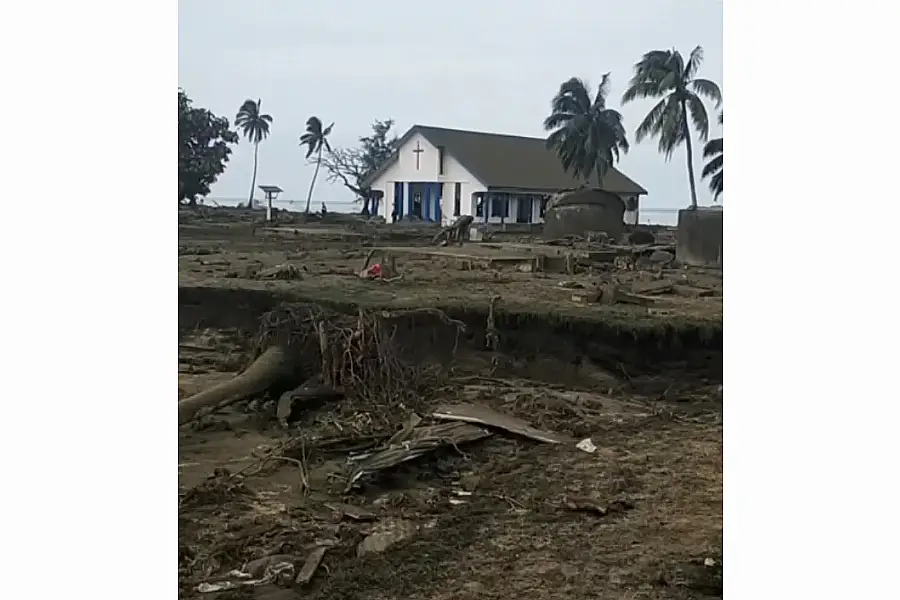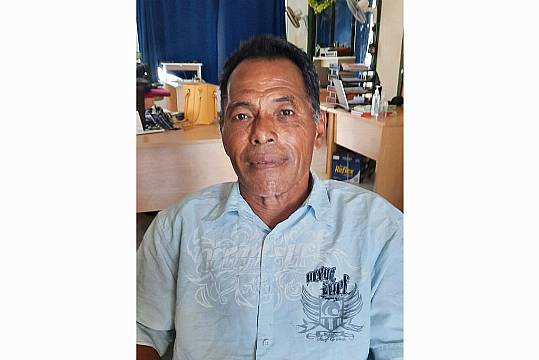A retired carpenter who survived overnight in the ocean after the Tonga tsunami swept him out to sea has revealed details of his incredible story.
The tale of Lisala Folau, who has disabilities that make walking difficult, has captivated people in Tonga and around the world.
Some have affectionately dubbed him Aquaman.
In a translated interview with Tonga’s BroadCom Broadcasting, Mr Folau, 57, said he was swept out to sea at about 7pm on Saturday from his home on Atata island and floated overnight before making landfall on an uninhabited island.
From there, he said that he drifted or swam another eight hours to a second deserted island before finally swimming again to the main island of Tongatapu, a total journey of more than 4.7 miles spread over 26 hours.
A New Zealand diplomat said his story appeared to fit with events at the time.
“It’s one of these miracles that happens,” said Acting High Commissioner Peter Lund on a satellite phone from Tonga, where communications remain patchy.

Mr Lund said that when he had his first briefing with Tongan government officials on Sunday, the day after the tsunami but before Mr Folau was found, they told him a person was missing from Atata island.
“And they weren’t very optimistic about it,” Mr Lund said.
But officials later revised their figures to indicate no one was missing from the island.
In an interview with Sky News, Mr Folau described how he felt during the experience.

“The scariest part to me during the ordeal was when the waves took me from land into the sea,” he said.
“What came into my mind when I was helpless at sea were two things. One, that I still had faith in God. Two, is my family. And I only remember how my family will think, at that moment, ‘Maybe he died’.”
Mr Folau said he had been working at his home doing some painting when his brother told him a tsunami wave was moving towards the tiny island, which has a population of about 60.
A video was shot the next day on Atata by Mr Folau’s son Koli Folau, who went searching for his father.
The video shows that almost nothing was left standing on the island other than a church, where many of the villagers took shelter.







